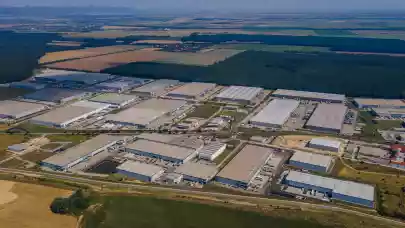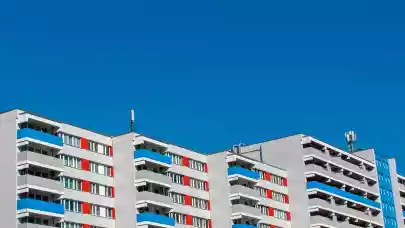
For the first time, Zagreb Property Forum was organised in the Croatian capital, bringing together real estate experts from the local market and beyond. The event confirmed increasing interest by investors and developers for Croatia, especially following the country’s admission to the Eurozone and the Schengen Area. However, given the global macroeconomic climate, uncertainty persists.
Future inflation trends remain an enigma, but yields remain stable
The panel on investment and financing strategies started with elephant in the room, which is the very high inflation that hit European countries, with all panellists agreeing that future inflation trends remain uncertain and that investors are doing their best navigating uncharted “high inflation waters”, while policymakers attempt to tamp down inflation, while at the same time avoiding economic slowdown and recession. Krisztián Hornok, Transaction Director at Indotek Group, does not expect a fast reduction of inflation and subsequently interest rates, due to the inflationary effects of war and a tight labour market, with a lot depending on central banks, whose decisions, however, have a certain transmission period.
In general, a slowdown of both inflation and reference rates is expected for 2024, “The overall expectations of market researchers are that the ECB starts reversing the trend in the reference rate movement sometime next year, so it is a good indication of what is to be expected in the upcoming period.”, stated Nikolina Vukelić, Head of Project, Structured and Real Estate Finance at Zagrebačka banka, adding that banks learned a lot from previous crises, therefore real estate financings were much better structured and banks have been more conservative in assessing the projects, hence another influx of non-performing real estate loans and distressed assets cannot be expected. Both Ivana Rajković Špes of Poseidon Group and Matevž Menčak of Generali Investments Slovenia emphasized that despite inflation certainly affecting their portfolios of retail, office and hotel assets, those impacts were not significantly negative, especially on prime assets. “It is important to realize that in this part of Europe, the yields never went so low compared to Czechia, Poland or even Germany. Yields are getting higher, but not by 3-4% as we are seeing in Western Europe, but rather by 25-50 bps," Menčak added.
Maja Ostanek, Director at ALFI Real Estate Fund, also gave an interesting insight regarding yields on the Slovenian and Croatian markets: “We as a buyer, of course, would be happy if the yields would go up, considering interest rates are going up, but on the other hand, you have to know that situation on the market is completely different than it was during and after the financial crisis when we had a lot of bad loan portfolio and from that you could as a purchaser ask for a higher yield, whereas right now we see that for the core plus assets, you can ask for a higher yield, but the seller is in a completely different situation, not willing to sell, so there is a big discrepancy between the demand yield and the sale yield on the other side.”
New developments and investments could be put on hold
With increasing costs of financing, alongside existing high construction costs and rents on unchanging levels, there is a general consensus that a lot of developments will be put on hold, while investments could be limited due to increasing yields. This will make asset owners more reluctant to sell and higher interest rates will make bank financing more expensive for the buyers. “In the last year, we started to notice that expectations slowly started to diverge between the buyers and sellers, however, there are still a couple of domestic investors willing to pay the premium because they know the market and they are willing to go to parts of Croatia where maybe an international investor would not go” Rajković Špes pointed out, also highlighting that there is extensive retail development across Croatia, however not all projects make sense and the market is reaching oversaturation, unlike logistics, where there is still a huge potential attracting huge developers from across Europe.
Residential continues to be the favourite asset class for the upcoming period
With increasing apartment prices and rents across Croatia, generating higher profit margins for the developers, but also for those renting the apartments in large cities and on the Adriatic coast, residential assets have been clear winners in recent years, both as a development and investment class. When it comes to the effects of the Eurozone and Schengen on the Croatian residential market, Mirta Ceranac Poljak, Managing Director at M7 Real Estate, stressed the fact that “in Croatia, we do not have an institutional residential market, and this is why we do not have institutional investors and there is no real investment residential market, thus the effects of Eurozone and Schengen depend on location and possibility to generate additional income from second homes”.
Subsequent panels of Zagreb Property Forum were focused on hot real estate topics like AI and ESG, while a final panel of the day gave an outlook of the Adriatic hotel market, all of them providing fruitful discussions and interesting insights by the panellists, followed by the afternoon of informal networking in Hilton Garden Inn Zagreb.



